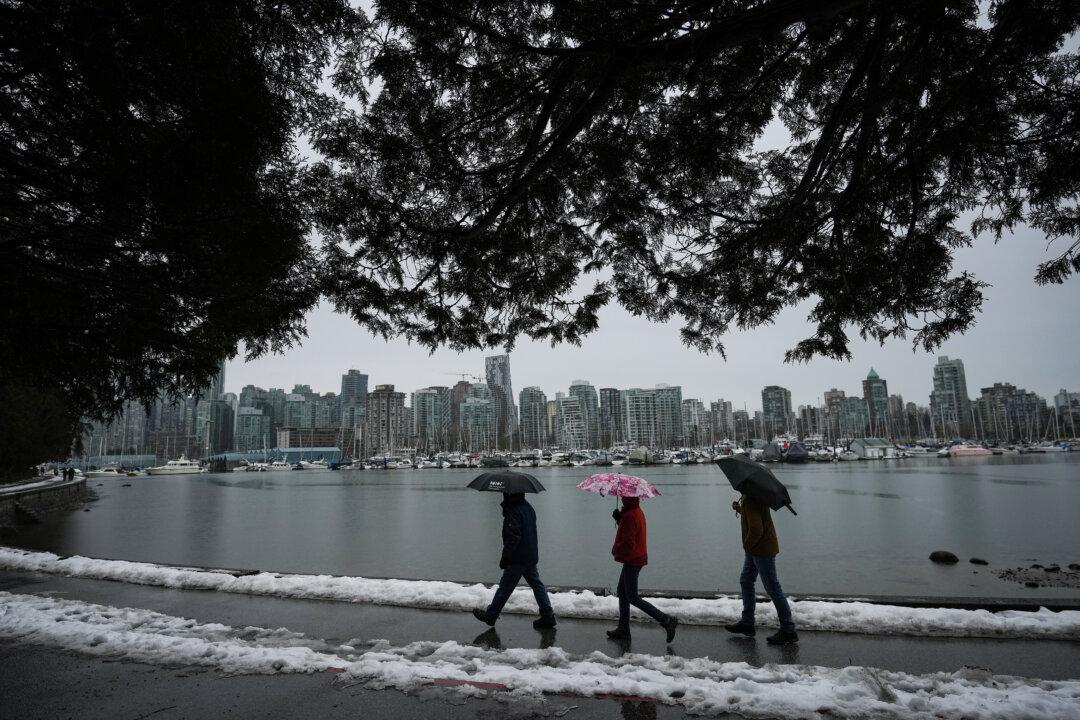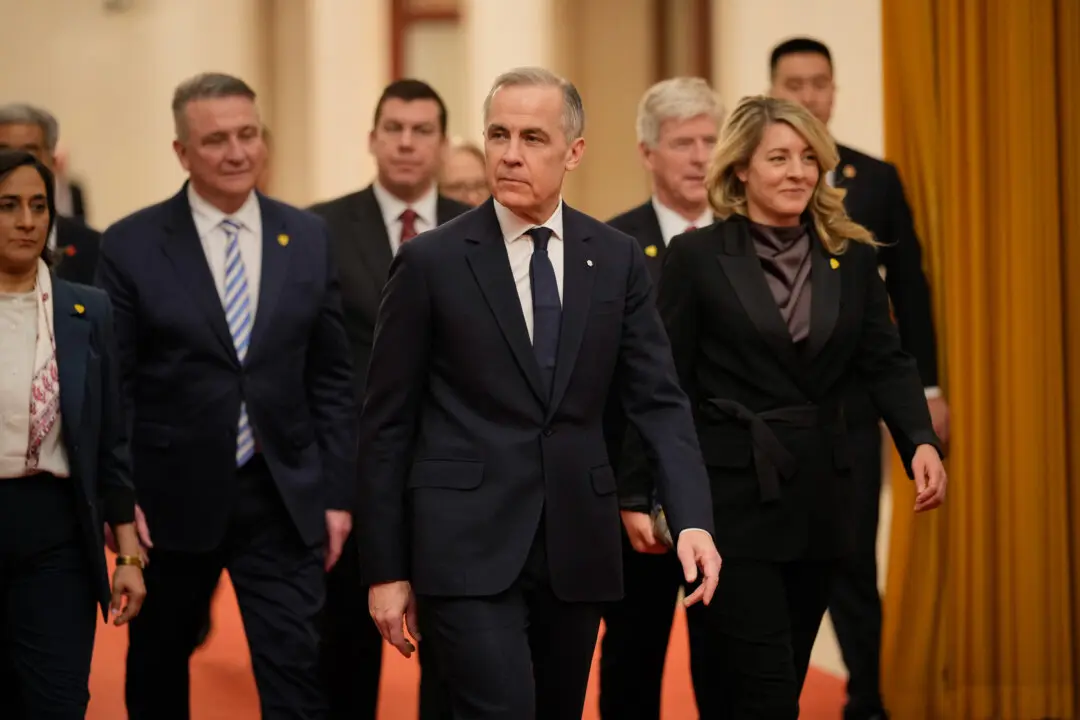It is impossible to disagree with the former governor of the Bank of Canada, Stephen Poloz, who said in a recent webinar that Canada is in an economic recession. He acknowledged that we are not in a technical recession, which requires two consecutive quarters of negative growth, but correctly attributed having avoided that to the waves of recent immigration that caused newcomers to acquire food, shelter, and clothing in an amount adequate to increase our gross consumption above previous quarters.
As if to confirm his view, Statistics Canada reported on Nov. 29 that per capita GDP had declined for the sixth consecutive quarter, falling by two-fifths of a percentage point in the third quarter. This measurement has been negative in eight of the last nine quarters, while growth in the Canadian economy was above forecasts at 2.1 percent for the second quarter but only 1 percent in the third quarter. Mr. Poloz was not having this one either, as he pointed out that the only recent gain in per capita GDP had been caused by increased deficitory government spending. “That’s not the sort of thing to build your recovery on,” he said.
The former governor reckons that the Canadian consumer has suffered a 30 percent increase in the cost of living following the recent inflationary period, which naturally reduced spending, and he attributes the relatively swift decline of inflation to a recessionary decline in spending rather than any evidence of public sector self-discipline. The discussion is being confused by contemplations of the impact of the returning U.S. President Donald Trump imposing 25 percent tariffs on imports from Canada and Mexico. The Canadian Chamber of Commerce has estimated that such an imposition of tariffs would reduce Canada’s GDP by 2.6 percent. And although it is not clear that the chamber possesses what it needs to calculate the impact of such a move on the economy of the United States, it predicts a 1.6 percent decline in that economy as well.
Mr. Poloz said such an increase would pose an inflationary risk and require central banks to keep rates higher for longer, slowing the economy beyond the effect that the tariffs themselves would have. A 25 percent tariff increase can almost certainly be avoided, as it is a non sequitur and an overreaction to Trump’s complaints about laxity in illegal immigration and drug smuggling across the Canada-U.S. border, and not unfair trading by Canada.
The former governor was somewhat dismissive of the federal government’s recent two-month pause of the goods and services tax on certain goods to help stimulate consumer spending. He said this might produce short-term relief for Canadian consumers but would have a negligible impact on long-term economic growth. There are many other ways to boost the economy more durably, he said, and described the GST reduction as being like “giving somebody a fish instead of a fishing rod.”
Because of Canada’s substantial economic integration with the United States, and because that country is such an economic powerhouse that Canada benefits from its proximity, however ungratefully, we generally manage a record of economic growth midway between the United States, which almost never experiences economic stagnation, and Europe, which is bumping along and desperately attempting to avoid or mitigate economic stagnation.
The drive for economic growth in China and India and many areas of Asia, Africa, and Latin America has created the conditions for strong and stable economic growth in Canada and a swift rise in our per capita disposable income. This can aid us to climb back up the ladder of individual prosperity where we have been falling down competitively throughout the last decade. Canada is one of the world’s greatest treasure houses of natural resources and possesses in abundance all but tropical agriculture, almost all forest products, almost all base and precious metals, and almost all forms of energy.
Under the current federal government and with the complicity of several of the provincial governments, we have effectively been embarrassed by the existence of our immense natural resources. For a long time, Canadians were self-conscious about being hewers of wood and drawers of water. Then we became distracted by wildly exaggerated tales of the planetary damage of resource exploitation and fossil energy use.
For an inexcusably long time we entertained the fantasy that we could sharply curtail our resource production and exportation and flourish equally as a service economy, as if most of the services in question could not be provided more cheaply by less wealthy countries. Every time somebody telephones us in one of Canada’s metropolitan areas from India offering to clean our eavestroughs, we get an inkling of the economics of that industrial sector. And on the regrettably infrequent occasions when we propose resource development and export, we are likely to be plunged into a decade of litigation from indigenous groups for historic trespass.
Canada should grow into its newly increased population by rapid resource development and maximization of exports, especially oil and natural gas, and we should gradually whittle down the scandalous total of over four million public-sector employees (10 percent of the entire population), reduce income taxes, and to the extent necessary replace those revenues with sales and consumption taxes on nonessential goods and services, and use the tax system to maximize incentivization of domestic and foreign investment in this country. We can develop the world’s first hard currency in many years. We could quickly afford an outstanding public broadcaster to replace the current one, and also transform the Canadian literary scene from the playpen of protectionist mediocrity that it largely is into the vibrant cultural environment of the vital and growing nation that it could quickly become.
The first step in all this is to take on board the accuracy of the analysis of Stephen Poloz, that we are in a recession of our own making, and do the necessary to accelerate out of it.
Canada has stalled, but it could break out of its torpor very quickly and resume its advance from a remote and desperately underpopulated colony 400 years ago to what could quickly become, by most measurements, one of the seven or eight most important countries of the world’s 200 nationalities. It is all to play for.





